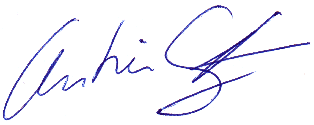|
Dear Readers,
Welcome to the first regular issue in 2020 presenting 6 novel and very
relevant research papers in various computer science topics. With the
26th volume in 2020 we move to the open license CC-BY-ND 4.0 and
therefore provide even more value and openness to the broader
community. Over the years we have not only offered open access to our
high-quality journal, but also did not charge our authors submission
or publication fees. This adventurous model together with a rigorous
review process and broad support by the community resulted in a
continuously improving impact factor. As of 2018, we are very happy to
report another improvement of the "5 Year Impact Factor" to 0.885. In
2019, we registered more than 96 thousand unique visits and about 62
thousand paper downloads. This success is only possible due to the
great support of all involved institutions, reviewers and authors
whose support and work I'd like gratefully to acknowledge. I also want
to thank our publishing assistant Dana Kaiser and the technical team
for their great support. My special thanks goes also to Professor
Herman Maurer, who initiated this journal in 1994 with a great vision
in mind, and recently received an award for his engagement in open
content including his involvement in J.UCS.
I am looking forward to continue the work together with our editors,
the editorial team and the technical support to keep the success of
J.UCS. I would be very grateful for suggestions and feedback how we
could even further improve and develop J.UCS in the future. Please
encourage your students and colleagues to submit high-quality articles
to our journal. Furthermore, I'd like to further extend our
editorial board so if you are a tenured Associate Professor or above
with a good publication record, please do apply for a membership in
our editorial board. I also want to extend to J.UCS consortium by
further partners, in particular from the North American and
Asia-Pacific region; please contact me if you and your organization
are interested in joining and supporting J.UCS.
In this regular issue, I am very pleased to introduce 6 accepted
papers from 6 different countries.
Gabriel Domingos de Arruda, Norton Trevisan Roman and Ana Maria
Monteiro from Brazil address media bias in their research which is
based on a tripartite model taking into account selection bias,
coverage bias and statement bias. Fernando Ferri, Alessia D'Andrea,
Arianna D'Ulizia and Patrizia Grifoni from Italy report on their
findings on the co-creation of e-learning content involving a teacher
and pupil from primary school to design a MOOC showing a positive
impact on both the students' engagement in co-producing the learning
content and their awareness and knowledge in the subject matter.
In a collaborative research between China and the UK, Huimin Fu, Yang Xu
Shuwei Chen and Jun Liu discuss their findings on improving WalkSAT
for random 3-SAT problems. Damir Krstinić, Maja Braović and Dunja
Božić-Stulić from Croatia introduce their research on automatic
natural landscape classiffication based on a pretrained deep
convolutional neural network and transfer learning. Yannick Pencolé
and Audine Subias from France propose a formal extension of the
chronicle formalism that allows for the concise description of
positive and negative behaviors. Murilo Falleiros Lemos Schmitt, Mauro
Henrique Mulati, Ademir Aparecido Constantino, Fábio Hernandes and
Tony Alexander Hild from Brazil proposes an algorithm for the set
covering problem based on the metaheuristic Ant Colony Optimization.
Enjoy reading!
Cordially,

Christian Gütl, Managing Editor
Graz University of Technology, Graz, Austria
Email: c.guetl@tugraz.at
|
